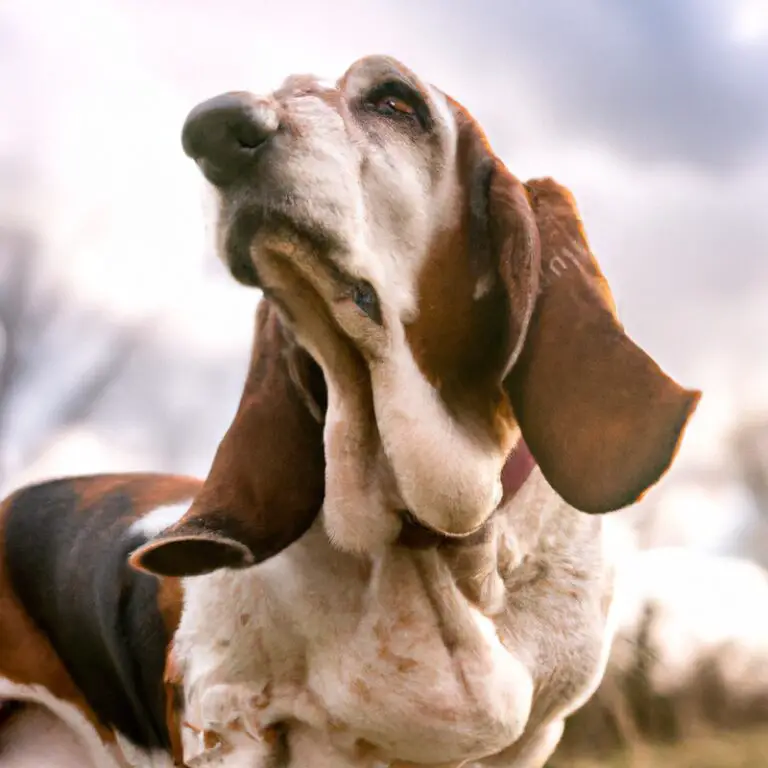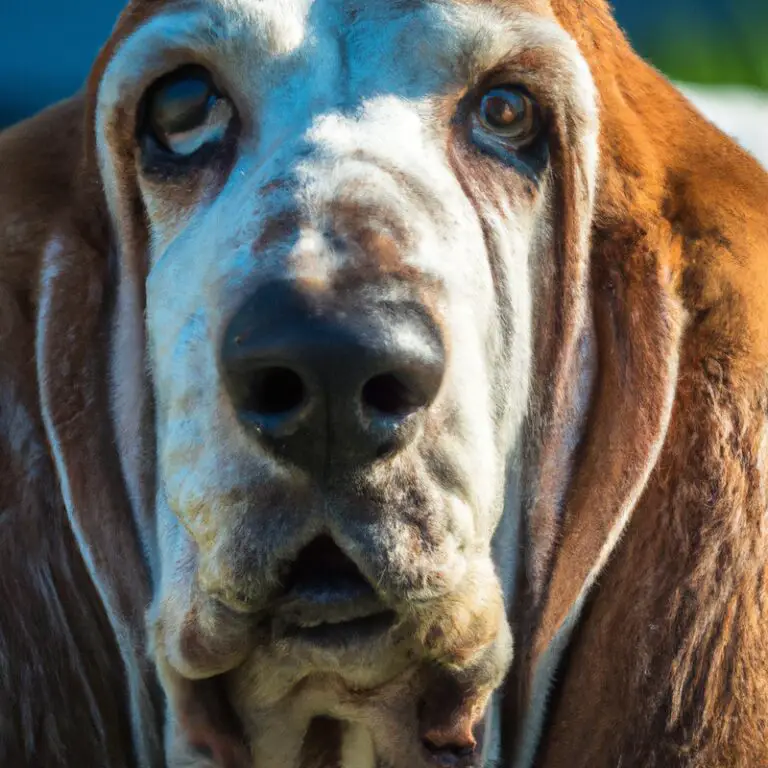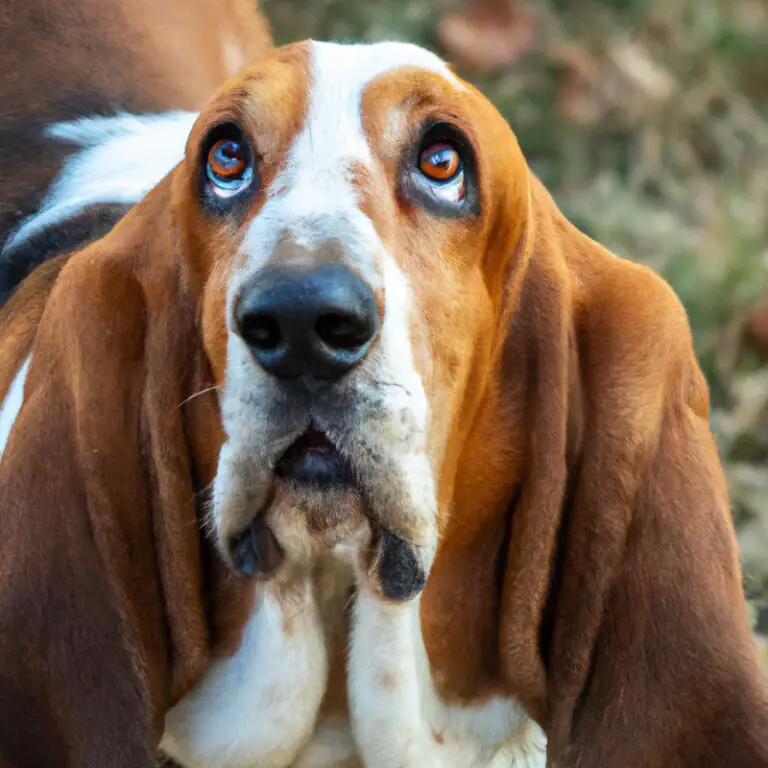Can Basset Hounds Be Trained To Be Service Dogs?
Key Takeaways:
- Basset Hounds can be trained as service dogs, but their suitability may vary.
- Their laid-back personality and strong sense of smell make them suitable for certain service dog roles.
- Basset Hounds require patient and consistent training due to their independent nature.
- Early socialization and positive reinforcement are key to successful training for Basset Hounds as service dogs.
Have you ever met a Basset Hound?
Those droopy ears, soulful eyes, and waddling gait can melt anyone’s heart.
But can these adorable creatures also serve as service dogs?
That’s the question we’re here to answer.
As an expert in the field, I’ll walk you through the key factors to consider when assessing the suitability of Basset Hounds for service work.
From understanding the roles of service dogs to examining the unique characteristics of Basset Hounds, we’ll dig deep into the world of training and highlight both the challenges and potential alternative roles for these lovable creatures.
So, grab a cup of coffee and get ready to be captivated by the possibilities.
By the end, you’ll have a thorough understanding of whether Basset Hounds can truly be trained as service dogs.
Let’s dive in!
| Question | Answer |
|---|---|
| Can Basset Hounds be trained to be service dogs? | Yes, but with certain limitations |
| Temperament | Generally calm and friendly, but may lack focus |
| Size | Medium to large, suitable for some tasks |
| Physical Abilities | May be limited due to short legs and long body |
| Training Challenges | May be stubborn and easily distracted |
| Common Tasks | Emotional support, therapy work |
| Specialized Tasks | May be difficult to train for complex tasks |
| Other Breeds | Many other breeds are more suited for service work |
Can Basset Hounds be trained as service dogs?
Understanding service dogs and their roles
Service dogs are highly trained animals that provide invaluable assistance to individuals with disabilities.
These dogs are trained to perform specific tasks that help their handlers navigate their daily lives and increase their independence.
Some common roles for service dogs include guide dogs for the visually impaired, hearing dogs for the deaf, mobility assistance dogs, and medical alert dogs.
These dogs not only provide practical support but also offer emotional comfort and companionship.
Service dogs play a crucial role in improving the quality of life for their handlers and enabling them to live more fulfilling and inclusive lives.

Characteristics of Basset Hounds
Basset Hounds have distinct characteristics that make them unique.
Firstly, their long ears and droopy eyes give them an adorable appearance.
They are known for their gentle and easygoing nature, making them great companions.
Bassets are also known for their strong sense of smell, which makes them excellent tracking dogs.
They have a calm and patient temperament and are usually friendly with both humans and other animals.
Bassets are generally stubborn and independent, which may require patience and consistent training.
They are moderate in size and have a sturdy build.
Their short legs and long bodies give them a distinctive look.

Assessing the suitability of Basset Hounds as service dogs
Assessing the suitability of Basset Hounds as service dogs primarily depends on the specific service task they are being trained for. Basset Hounds are known for their gentle, easygoing nature, loyalty and good temperament, which can make them suitable candidates for certain service roles.
However, their inherent stubbornness and tendency to become easily distracted may pose challenges during training.
Additionally, their low energy levels may limit their suitability for physically demanding service tasks. It is important to evaluate each Basset Hound individually and consider their unique characteristics before determining their suitability as service dogs.
Training requirements for Basset Hounds as service dogs
Training requirements for Basset Hounds as service dogs include consistency, patience, and positive reinforcement techniques. Bassets are intelligent but can be stubborn, so training should be firm yet gentle.
Socialization with various people, environments, and other animals is crucial.
Basic obedience commands like sit, stay, and come are essential. Specific tasks related to the service dog’s role, such as retrieving objects or providing emotional support, should also be taught.
Regular practice and continued reinforcement throughout the dog’s life are necessary for success in service work.
Challenges and considerations for training Basset Hounds as service dogs
Training Basset Hounds as service dogs can pose a few unique challenges and considerations.
First, their strong scenting instincts and stubborn nature may make it challenging to focus on tasks or commands.
Additionally, their long ears and droopy skin can be prone to infections, requiring regular care and monitoring.
Basset Hounds are also prone to obesity, so managing their diet and exercise is crucial for maintaining their health.
Finally, their large size and low energy levels may limit their suitability for some physical assistance tasks.

Alternative roles for Basset Hounds in service work
Basset Hounds may not be the first breed that comes to mind when you think of service dogs, but they can excel in certain alternative roles within service work.
Some of the alternative roles that Basset Hounds can perform include:
- Therapy dogs: Basset Hounds have a gentle and comforting nature, making them great candidates for therapy work. They can provide emotional support and companionship to individuals in various settings, such as hospitals, nursing homes, and schools.
- Search and Rescue dogs: Despite their short legs, Basset Hounds have a remarkable sense of smell. They can be trained to assist in search and rescue operations, particularly in locating missing persons in wilderness areas.
- Scent detection dogs: Basset Hounds have an exceptional sense of smell, allowing them to detect specific scents. They can be trained to sniff out drugs, explosives, or even medical conditions, making them valuable assets in law enforcement or medical settings.
- Tracking dogs: With their strong tracking instincts, Basset Hounds can be trained to follow scents and track individuals. This skill is useful in locating lost or missing persons in both urban and rural environments.
These alternative roles highlight the unique abilities and characteristics that Basset Hounds possess, demonstrating their potential value in service work beyond traditional service dog roles.
If you’re interested in exploring these alternative roles, be sure to consult with professionals and organizations that specialize in training and utilizing Basset Hounds in these areas.
Resources for further information and assistance in training Basset Hounds as service dogs
If you’re looking for more information and assistance in training Basset Hounds as service dogs, there are several resources available to help you on your journey. One great option is to consult with a professional dog trainer who specializes in service dog training.
They can provide personalized guidance and support.
Additionally, there are numerous books, online resources, and training programs specifically tailored to training service dogs. Some reputable organizations that offer resources for training service dogs include the International Association of Assistance Dog Partners and Canine Companions for Independence.
These organizations provide valuable information and guidance to help you successfully train your Basset Hound as a service dog.
Final Verdict
While Basset Hounds possess some characteristics that may make them challenging candidates for traditional service dog roles, they can still excel in alternative forms of service work such as therapy or emotional support. Their gentle nature, loyalty, and intelligence can be harnessed with proper training and guidance.
However, it is crucial to carefully assess the individual dog’s temperament and capabilities before embarking on the training process.
Seeking professional assistance and resources in training Basset Hounds for service work is highly recommended. Overall, with the right approach and support, Basset Hounds can contribute meaningfully to the service dog community.







